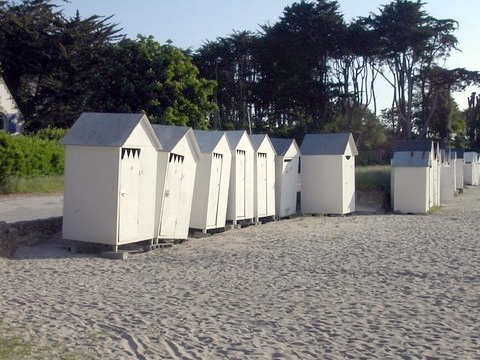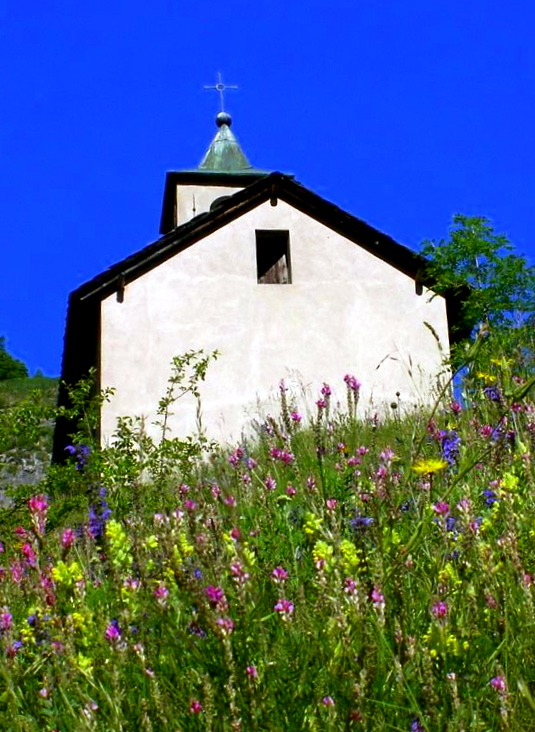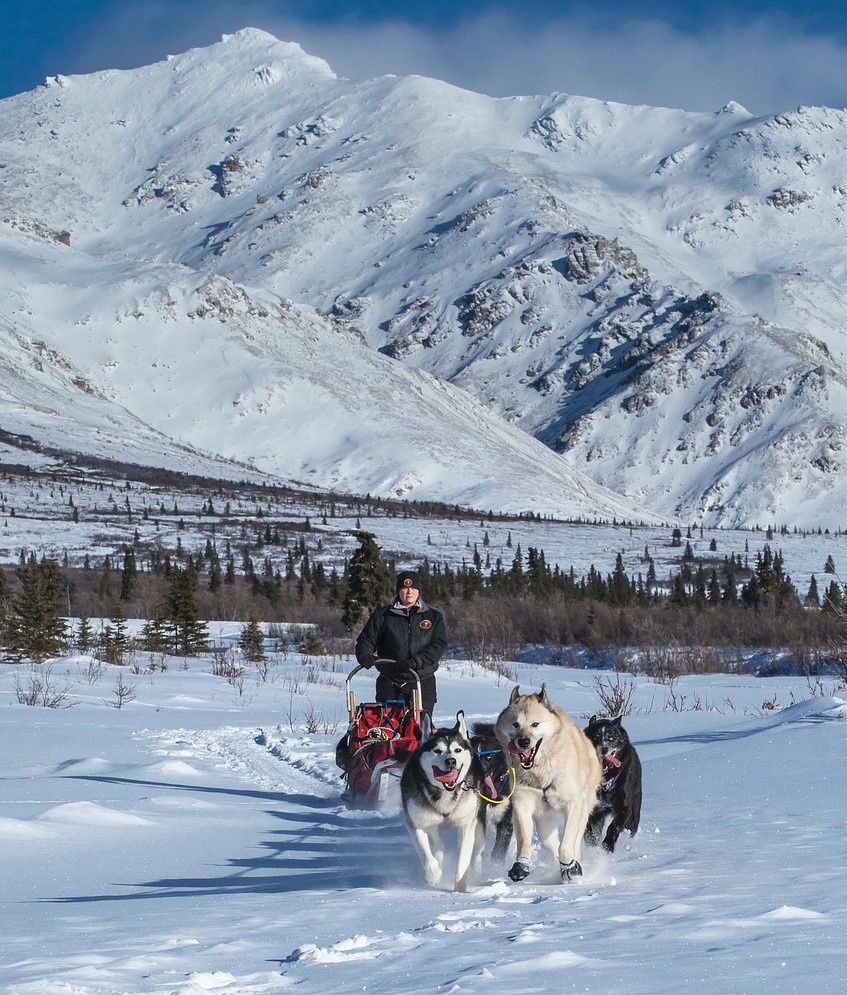By sheer chance and great good fortune we arrive at a small, pretty car park in a grove of trees just a few metres from the beach at nearby Port-Manec’h. A friendly French couple come over to tell us that campervans are allowed to park here overnight. They have been here four days, but are now leaving. We must be very careful, they warn, because two nights ago a gang of drunken youths had attacked them. No damage was done, mais quand même …..
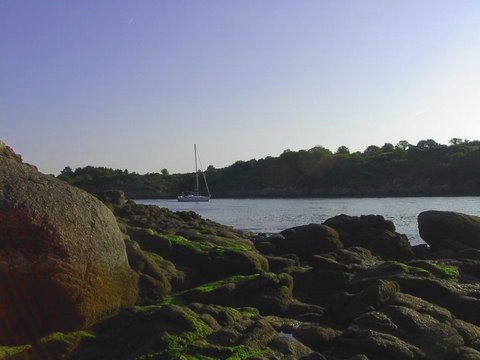
Port Manech 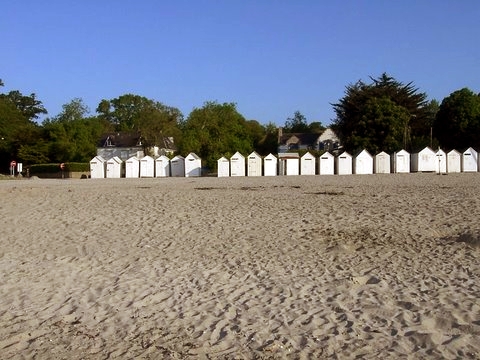
Beach Huts at Port Manech 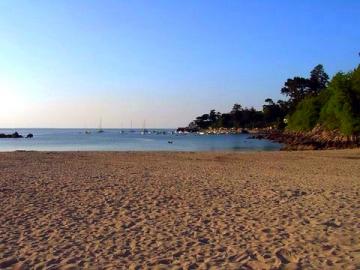
Port Manech
On the beach two dozen blue and white bathing huts stand like sentry boxes in a row. A few of them seem tired and are leaning on their neighbours. There are a couple of yachts anchored in the aquamarine water. It’s easy to imagine Gauguin and his friends at their easels here, catching their pipe smoke with the brims of their straw hats, and dabbing idly at their canvasses.
When the dogs have had a run I put a couple of salmon steaks in the oven, and Terry and I stroll along a footpath through a copse leading to a cumbersome stone building standing on a small headland. A lean, lanky man appears wearing a checked shirt and faded blue jeans halfway down his snake-thin hips. Large spectacles magnify his bright-blue eyes, and an unlit aromatic pipe juts from beneath a walrusy moustache.
I begin to worry about the salmon in the oven and make getting-up-to-go moves; but Hervé signals me with his sharp knife to sit down while he regales us with a story featuring Admiral Donitz, some English submarines, and the barbarity of the Ukrainian soldiers who’d massacred the Port-Manec’h locals.
“When the Resistance – you know about the Resistance, don’t you?” he jabs me with his elbow, and I nod – “When the Resistance caught the Ukrainians, you know what they did to them?”
…..”Killed them? Shot them?”
…….He puts his wide blue eyes close to my face, and says slowly and clearly:
…..”They cut out their tongues and dug out their eyes, and filled the holes with wire netting!”
…..”Why?”
…..”And you know why oysters are so expensive in England, don’t you?”
No, I don’t. I’m still waiting to learn about the wire netting. At the same time Terry is trying to keep up with the conversation in his minimal French, while I fill in the parts he can’t get, without really understanding them myself.
“Well, I’ll tell you.” Hervé stares silently at me for several minutes, and I stare back like a rabbit hypnotised by a snake. I am seriously worried in case the salmon catches fire and burns the van down with the dogs in it.
“You want some more oysters, don’t you?”
No, I say, thank you very much, we really don’t want any more oysters. I don’t add that if I never ate another oyster for the rest of my life I’d be perfectly happy. We do not know what our relationship with Hervé is, if we are his guests, or his customers and are going to be presented with a bill that we don’t have the means to pay. Ignoring our refusal, he goes away and returns with another fistful of oysters and puts them in front of Terry, who raises his hands in a gesture that says “No thank you.” Hervé pushes them at him forcefully. Terry opens and eats them.
What are we doing, he asks? Without waiting for a reply he offers us a glass of wine and some oysters. We haven’t any money with us, and I don’t eat oysters if I can possibly avoid them, so we decline politely. He introduces himself – his name is Hervé – and vanishes inside the building. When he returns he’s carrying two glasses of wine, a fistful of oysters and a sharp knife with which he points us to a table. A deafening noise is blasting from the building – I think it’s the Ride of the Valkyries playing at thunderous volume on a radio that isn’t precisely tuned to the station. Hervé won’t have a drink himself, but expertly stabs open an oyster and holds it out to me. I hide my reluctance behind a gracious mask, and gulp down the vile thing. Terry finishes the rest. Hervé and his pipe sit between us. Quite what he is talking about we aren’t sure, because all his tales taper off before reaching their finale. He is much given to elbow digging and long meaningful stares whose meaning we cannot grasp, and all the while the Valkyries are galloping more frenziedly through the radio’s static crackling.
Now Hervé wants to arm-wrestle with Terry.
“Well, what a pity we must leave,” I say. “We have a long way to go.”
This is of course untrue. Hervé is a delightful man, but I am worried that if he knows we are staying in the nearby car park he might spend all night, to the accompaniment of the furious Valkyries, telling us stories that don’t end and we can’t understand, and forcing upon us oysters I don’t want and we don’t have the wherewithal to pay for. We all stand up, and Hervé kisses me six times; Terry receives one kiss and another arm-wrestle. Hervé writes his and my name on a piece of paper, and gives me six more kisses. Terry asks him how we can pay for the oysters. Hervé casually indicates a battered box on his table, and Terry empties into it all the loose change from his pocket, which didn’t amount to very much at all.
We never learn why oysters are so cheap in France and so expensive in England, nor why the dead Ukrainians were filled with wire netting.
By the time we get back to Tinkerbelle the salmon steaks are almost but not quite beyond redemption. In the late evening we sit reading and watching a melange of blue tits, robins and chaffinches hoovering up the charred remains of our meal. A small green caterpillar humps itself ticklishly up my leg. The night passes peacefully; we are not attacked by intoxicated adolescents, but merely assailed by the pervading odour of burnt fish.
Extract from Travels With Tinkerbelle – 6,000 Miles Around France In A Mechanical Wreck, by Susie Kelly, published in ebook and paperback by Blackbird Digital Books. All images copyright of Susie Kelly.


